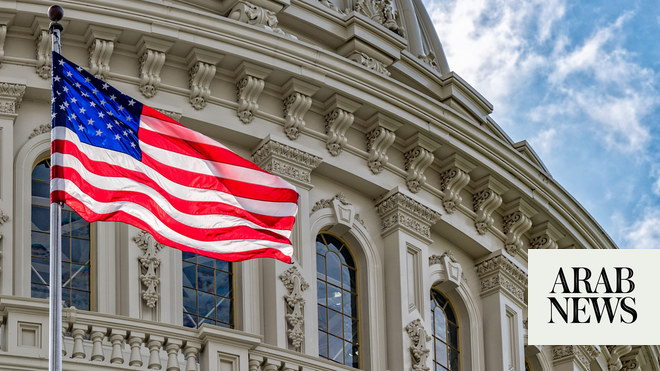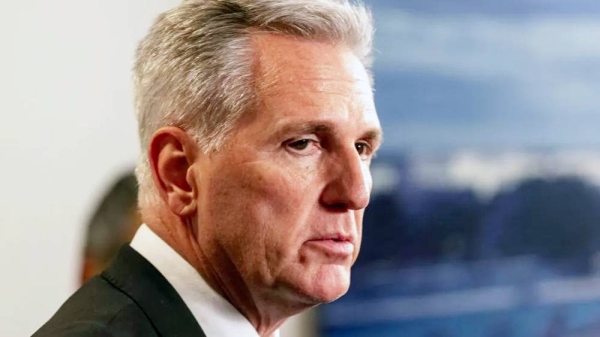
OPINION: Joe Manchin, America’s climate decider-in-chief, is a coal baron
Mark Hertsgaard writes for the Guardian:
Joe Manchin has never been this famous. People around the world now know that the West Virginia Democrat is the essential 50th vote in the US Senate that president Joe Biden needs to pass his agenda into law. That includes Biden’s climate agenda. Which doesn’t bode well for defusing the climate emergency, given Manchin’s longstanding opposition to ambitious climate action.
It turns out that the Senator wielding this awesome power – America’s climate decider-in-chief, one might call him – has a massive climate conflict of interest. Joe Manchin, investigative journalism has revealed, is a modern-day coal baron.
Financial records detailed by reporter Alex Kotch for the Center for Media and Democracy and published in the Guardian show that Manchin makes roughly half a million dollars a year in dividends from millions of dollars of coal company stock he owns. The stock is held in Enersystems, Inc, a company Manchin started in 1988 and later gave to his son, Joseph, to run.
Coal has been the primary driver of global warming since coal began fueling the Industrial Revolution in Great Britain 250 years ago. Today, the science is clear: coal must be phased out, starting immediately and around the world, to keep the 1.5C target within reach.
Scientists estimate that 90% of today’s coal reserves must be left in the ground. No new coal-fired power plants should be built. Existing plants should quickly shift to solar and wind, augmented by reducing electricity demand with better energy efficiency in buildings and machinery (which also saves money and produces more jobs).
This is not a vision that gladdens a coal baron’s heart. The idea of eliminating fossil fuels is “very, very disturbing”, Manchin said in July when specifics of Biden’s climate agenda surfaced. Behind the scenes, Manchin reportedly has objected to Biden’s plan to penalize electric utilities that don’t quit coal as fast as science dictates.
Top Republicans rub shoulders with extremists in secretive rightwing group, leak reveals
A leaked document has revealed the membership list of the secretive Council for National Policy (CNP), showing how it provides opportunities for elite Republicans, wealthy entrepreneurs, media proprietors and pillars of the US conservative movement to rub shoulders with anti-abortion and anti-Islamic extremists.
The Southern Poverty Law Center (SPLC), which monitors rightwing hate groups, describes the CNP as “a shadowy and intensely secretive group [which] has operated behind the scenes” in its efforts to “build the conservative movement”.
The leaked membership list dates from September last year, and reveals the 40-year-old CNP put influential Trump administration figures alongside leaders of organizations that have been categorized as hate groups.
The group was founded in 1981 by activists influential in the Christian right, including Tim LaHaye, Howard Phillips and Paul Weyrich, who had also been involved in founding and leading the Moral Majority. Initially they were seeking to maximize their influence on the new Reagan administration. In subsequent years, CNP meetings have played host to presidential aspirants like George W Bush in 1999 and Mitt Romney in 2007, and sitting presidents including Donald Trump in 2020.
In videos obtained by the Washington Post in 2020, the CNP executive committee chairman, Bill Walton, told attendees of the upcoming election: “This is a spiritual battle we are in. This is good versus evil.”
The CNP is so secretive, according to reports, that its members are instructed not to reveal their affiliation or even name the group.
Heidi Beirich, of the Global Project Against Hate and Extremism, said in an email that “this new CNP list makes clear that the group still serves as a key venue where mainstream conservatives and extremists mix”, adding that CNP “clearly remains a critical nexus for mainstreaming extremism from the far right into conservative circles”.
The document – which reveals email addresses and phone numbers for most members – shows that the CNP includes members of SPLC-listed hate groups.
The Senate approved Rohit Chopra as the director of the Consumer Financial Protection Bureau (CFPB), voting 50-48.
Chopra, 39, served on the Federal Trade Commission and worked with senator Elizabeth Warren of Massachusetts to establish the CFPB in the aftermath of the 2008 financial crisis. His appointment was uncertain after he drew criticism from free-market conservatives who saw him as “anti-business”
In March, the Senate Banking Committee voted with a 12-12 tie on Chopra’s nomination, failing to advance him to a broader vote - but senate leader Chuck Schumer chose to disregard of “discharge” that vote.
Chopra has promised to crack down on banks’ use of online behavioral advertising and look at their data collection practices. He has also said he will focus on fair lending issues as CFPB director.
Congress grills Facebook exec on Instagram’s harmful effect on children
Kari Paul
Antigone Davis, Facebook’s global head of safety, faced a grilling before the US Congress on Thursday in a hearing examining the impacts of the company’s products on children.
Thursday’s hearing of the Senate commerce, science and transportation subcommittee comes after a series of Wall Street Journal reports based on internal Facebook leaks, including a story that revealed research showing the harmful effects of Instagram on childhood mental health.
Senators took a hard line against the company, hammering into the research and highlighting Facebook’s attempts to obfuscate it leading up to the hearing.
“Facebook knows the disruptive consequences that Instagram’s design and algorithms are having on young people in our society, but it has routinely prioritized its own rapid growth over basic safety for our children,” said Richard Blumenthal, the chair of the subcommittee, in his opening statement.
“This research is a bombshell,” Blumenthal said. “It is powerful, gripping, riveting evidence that Facebook knows of the harmful effects of its site on children, and that it has concealed those facts and findings.”
Blumenthal noted that his office conducted its own research into Instagram, posing as a 13-year-old girl and following accounts associated with eating disorders to see what Instagram would recommend. It found the platform sent the account further into the rabbit hole of harmful content.
“Our research shows right now, in real time, Instagram’s recommendations latch on to a person’s insecurities, a young woman’s vulnerability, about their bodies and drag them into dark places that glorify eating disorders and self-harm,” said Blumenthal.
“IG stands for Instagram, but it also stands for Insta-greed,” said Senator Edward Markey, a Democrat from Massachusetts.
The research that sparked the hearing, revealed in the Wall Street Journal report, was commissioned by Instagram, which is a subsidiary of Facebook, and showed that the photo app could affect girls’ mental health on issues such as body image and self-esteem.
Progressive congresswoman Alexandria Ocasio-Cortez sharply criticized moderate Democrats like Joe Manchin over their handling of the infrastructure negotiations.
Ocasio-Cortez reframed the moderate wing of her party as “conservative,” accusing fellow Democrats of failing to engage with their colleagues in a substantive way.
“Right now, what we are seeing from the conservative side, this small cadre of people, is a fundamentally unserious pattern of negotiation,” Ocasio-Cortez told reporters on Capitol Hill.
Ocasio-Cortez is one of the dozens of House progressives threatening to vote against the infrastructure bill unless the reconciliation package advances at the same time.
Today so far
That’s it from me today. My west coast colleague, Maanvi Singh, will take over the blog for the next few hours.
Congress passed a stopgap funding bill to prevent a government shutdown, sending the legislation to Joe Biden’s desk. The House and the Senate passed the bill this afternoon, and the president needs to sign the legislation before midnight to avoid a shutdown.
House speaker Nancy Pelosi said Democrats are “on a path to win” the infrastructure bill vote, which was originally scheduled to occur today. But it remains unclear whether Democrats will be able to pass the bill today, as many progressives have threatened to oppose the legislation until the reconciliation package advances as well.
Joe Manchin has proposed a top-line cost of $1.5tn for the reconciliation package, angering progressives who view the current price tag of $3.5tn as a serious compromise. “I’ve never been a liberal in any way, shape, or form,” Manchin told reporters today. Addressing the criticism from progressives, he added, “For them to get [their reconciliation package], elect more liberals.”
Congresswoman Cori Bush shared the story of her rape and subsequent abortion during a House committee hearing on reproductive rights. “In the summer of 1994, I was raped, I became pregnant, and I chose to have an abortion,” Bush said during the oversight committee hearing. “To all the Black women and girls who have had abortions and will have abortions, we have nothing to be ashamed of. We live in a society that has failed to legislate love and justice for us.”
Maanvi will have more coming up, so stay tuned.
House speaker Nancy Pelosi has just signed the stopgap government funding bill, formally sending the legislation to the White House for Joe Biden’s signature.
The president will need to sign the bill before midnight to avoid a government shutdown, and he is expected to do so.
“It really is exciting to keep government open,” Pelosi said as she signed the bill.
Vice-President Kamala Harris was on Capitol Hill today to break a tie vote in the Senate over Rohit Chopra’s nomination to lead the Consumer Financial Protection Bureau.
Asked about the fate of the bipartisan infrastructure bill, Harris told CNN that she is “confident” the House will pass the proposal.
But the vice-president would not say whether she believed the bill would be passed today, as previously expected. “I don’t have that answer,” Harris said.
The House is now in recess, after the chamber passed the government funding bill to prevent a shutdown at midnight.
It remains unclear whether House speaker Nancy Pelosi has the votes to hold a final vote on the bipartisan infrastructure bill today, as she previously planned to do.
Pelosi is expected to hold more meetings with members of the Democratic caucus as the House is in recess. Stay tuned.
House passes government funding bill to prevent shutdown, sending it to Biden
The House has now officially passed the stopgap government funding bill to avert a shutdown at midnight.
The final vote was 254 to 175, with 34 Republicans joining all 220 Democrats to get the bill passed. A simple majority of 218 votes was needed to pass the bill.
The measure passed the Senate earlier today, so the bill now goes to the desk of Joe Biden, who is expected to quickly sign it and thus prevent a shutdown.
The bill will keep the government funded at its current levels through December 3, giving Congress more time to negotiate over a more comprehensive piece of legislation.
It remains unclear whether the House will also vote today on the infrastructure bill, as dozens of progressives insist they will oppose the legislation until the reconciliation package passes as well.
The House vote on the stopgap government funding bill remains open, but there are now enough votes to pass the measure.
As of now, 233 House members, including 26 Republicans, have voted in favor of the bill, which would allow the country to avoid a government shutdown at midnight.
The bill needs a simple majority of 218 votes to pass, so it should have more than enough support to get approved. Stay tuned.
The House is now voting on the stopgap government funding bill, which the Senate passed about an hour and a half ago.
The House is expected to pass the bill as well and then send it to the desk of Joe Biden, who must sign the legislation before midnight to prevent a government shutdown.
A reporter asked Jen Psaki whether Joe Biden plans to speak publicly today about the negotiations over the infrastructure bill and the reconciliation package.
“We’ll see,” the White House press secretary said.
“I can’t make a prediction for you now, but it is certainly possible. It’s also possible he has more meetings. He’ll certainly make more phone calls, possibly moves.”
Jen Psaki downplayed concerns about Democrats’ ongoing squabbles over the infrastructure bill and the reconciliation package.
“This is how democracy works. I know that feels foreign since there wasn’t a lot of it over the last couple of years,” the White House press secretary said, getting in a dig against the Trump administration.
Psaki said Joe Biden will be devoting the rest of his day to trying to reach an agreement on the reconciliation package, thus freeing up House progressives to vote for the infrastructure bill.
One reporter asked Psaki how Biden is following the ongoing negotiations and if he has, for example, a whiteboard with an updated whip count on the two bills.
Psaki said there is (unfortunately) no whiteboard because the president is “more of a paper-and-pen kind of guy”.
The White House press secretary, Jen Psaki, is now holding her daily briefing, and she’s providing an update on negotiations over the infrastructure bill and the reconciliation package.
Asked about the news that Joe Manchin’s preferred top-line cost of the reconciliation package is $1.5tn, which is far less than what progressives want, Psaki said, “It’s messy, this sausage-making on Capitol Hill. Policymaking is messy.”
Psaki acknowledged there are more hurdles to overcome before reaching a deal on the reconciliation package, but she expressed hope that the House would still be able to pass the infrastructure bill later today.
As of now, it’s unclear whether the House will be able to pass the infrastructure bill because dozens of progressives remain opposed to the legislation unless an agreement is reached on the reconciliation package.
“We’re working towards winning a vote tonight,” Psaki said. “We have several hours left in the day.”
The House is now debating the Senate-approved government funding bill, with a final vote on the legislation likely to occur within an hour.
The House is expected to pass the proposal and send it to Joe Biden, who must sign the bill before midnight to avoid a government shutdown.
Kyrsten Sinema is pushing back against criticism from progressives that she has not been transparent about her stance on the reconciliation package, saying she has shared specific concerns about the bill with Joe Biden and Chuck Schumer.
Sinema, a key moderate vote in the debate over the reconciliation bill, released a statement saying that she communicated her concerns about the legislation in August.
“Senator Sinema said publicly more than two months ago, before Senate passage of the bipartisan infrastructure bill, that she would not support a bill costing $3.5 trillion,” the statement from her office says.
“In August, she shared detailed concerns and priorities, including dollar figures, directly with Senate Majority Leader Schumer and the White House. Claims that the Senator has not detailed her views to President Biden and Senator Schumer are false.”
The statement adds that Sinema “continues to engage directly in good-faith discussions with both President Biden and Senator Schumer to find common ground”.
Earlier today, Politico obtained a memo showing Joe Manchin told Schumer in July that his preferred top-line cost for the reconciliation bill is $1.5tn, which is far less than the current price tag of $3.5tn.
Fifteen Senate Republicans, including minority leader Mitch McConnell, joined all 50 Senate Democrats in voting for the stopgap government funding bill.












